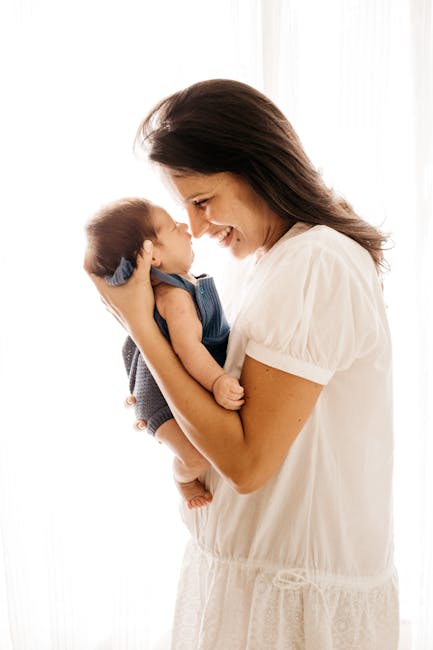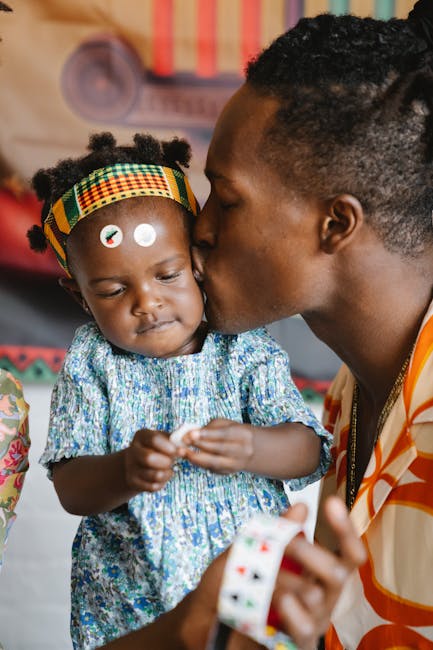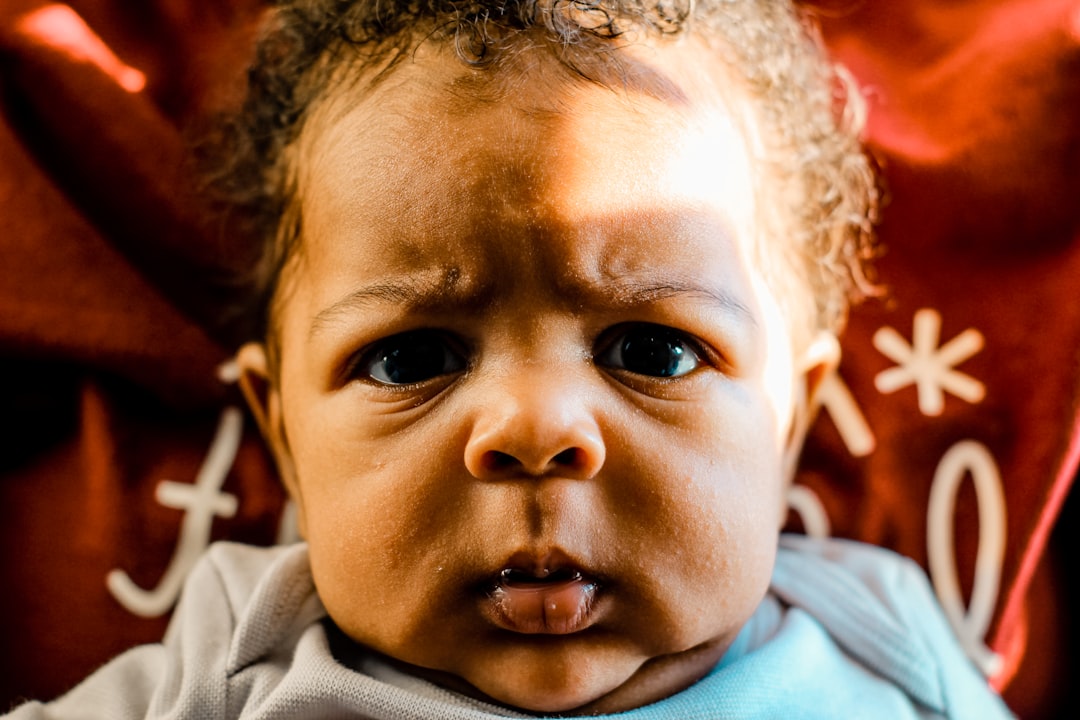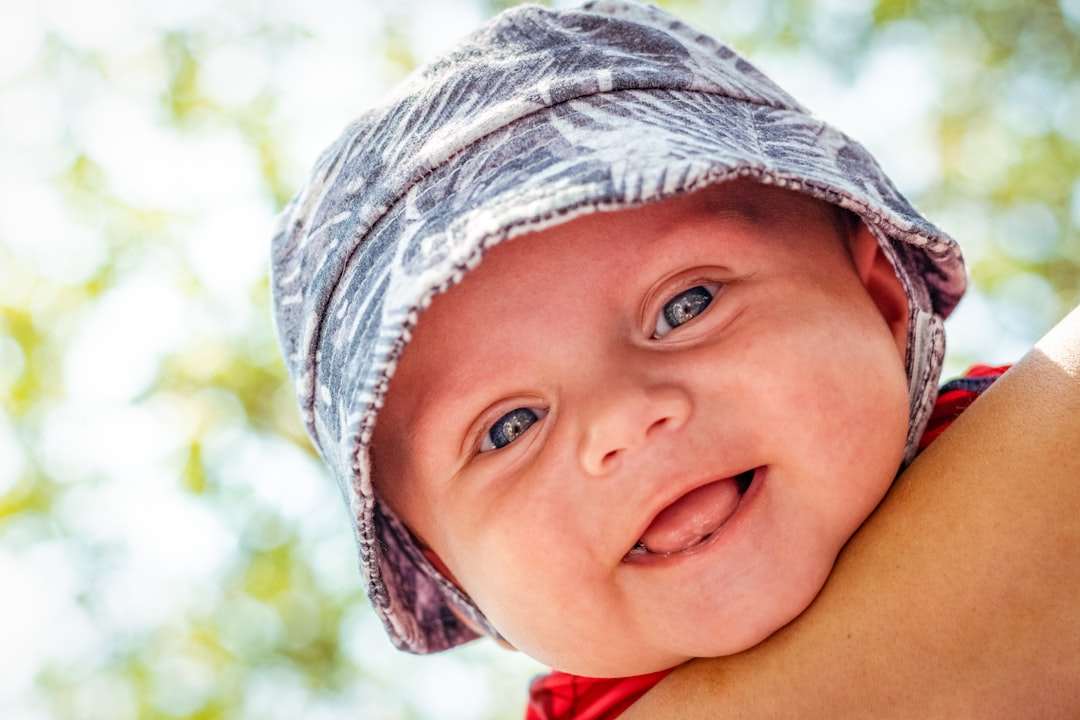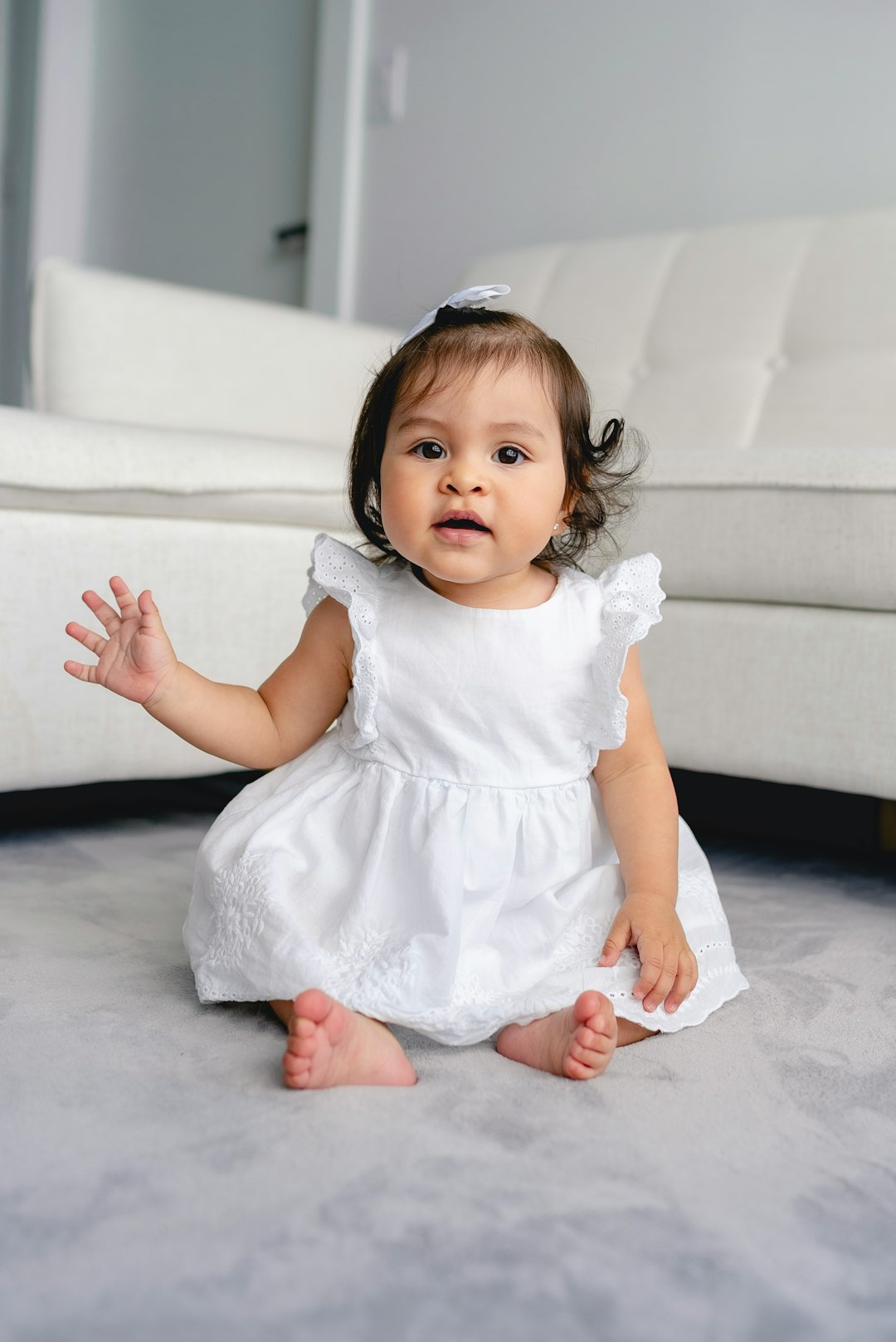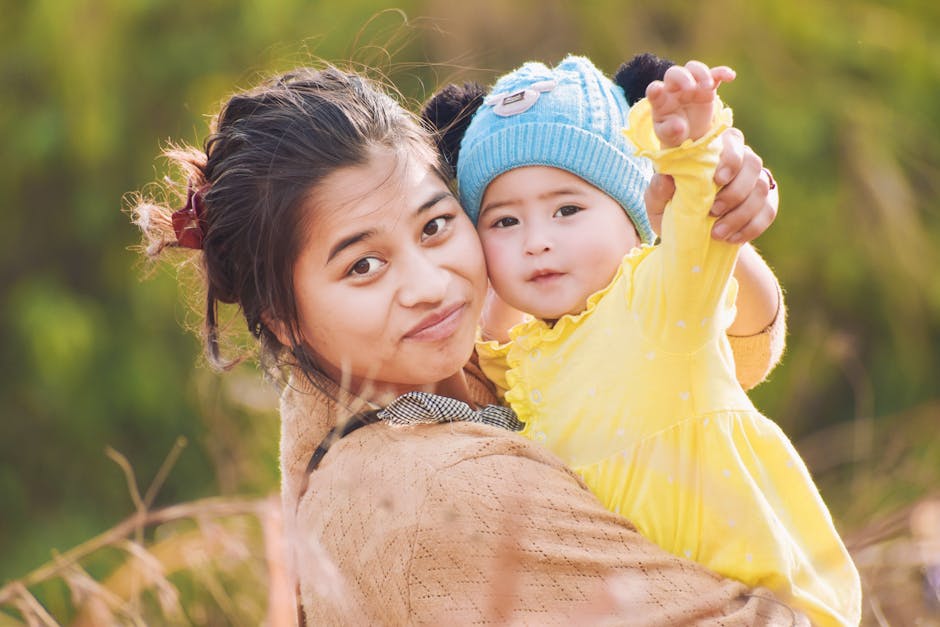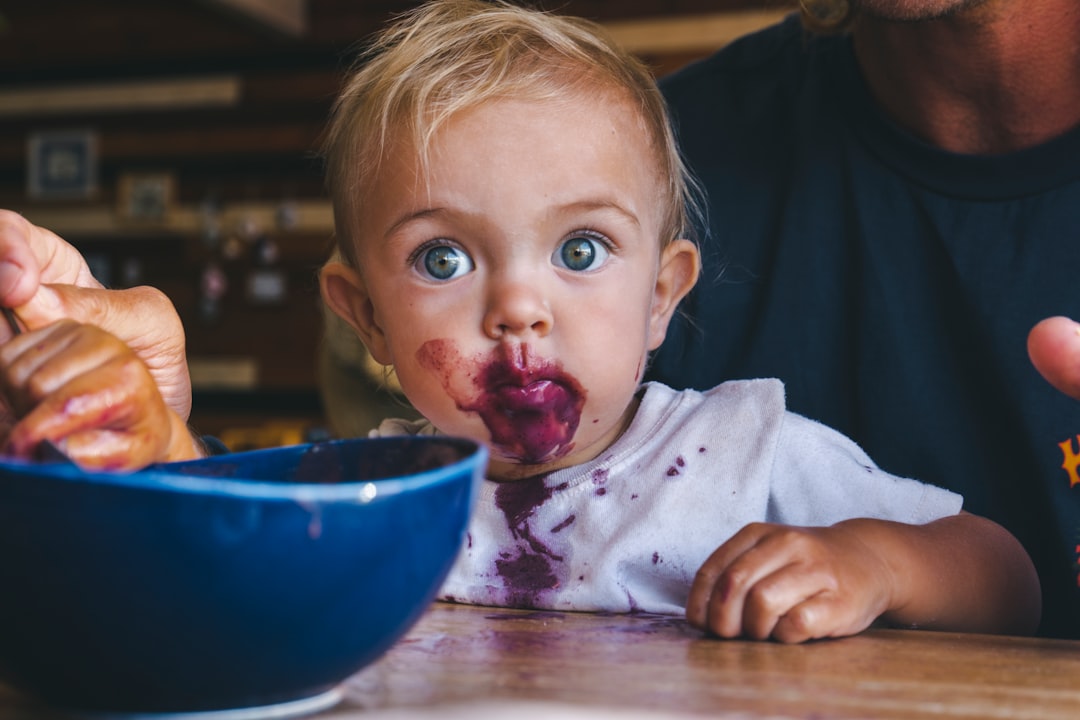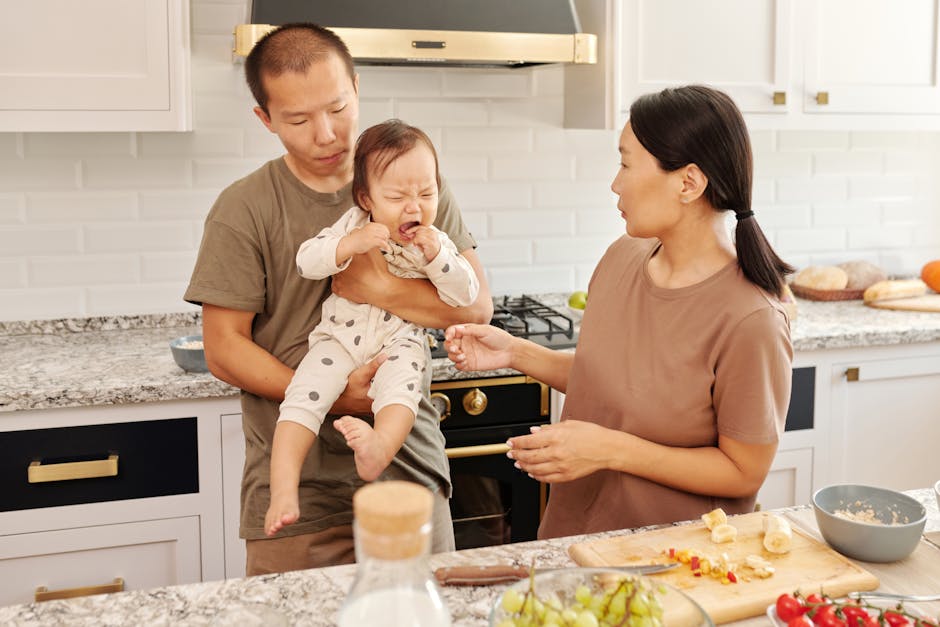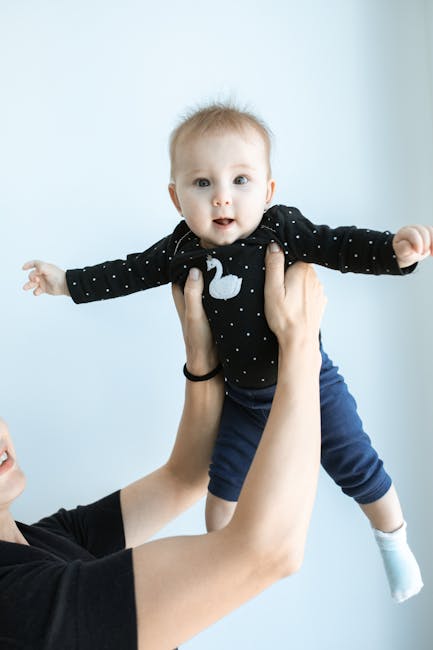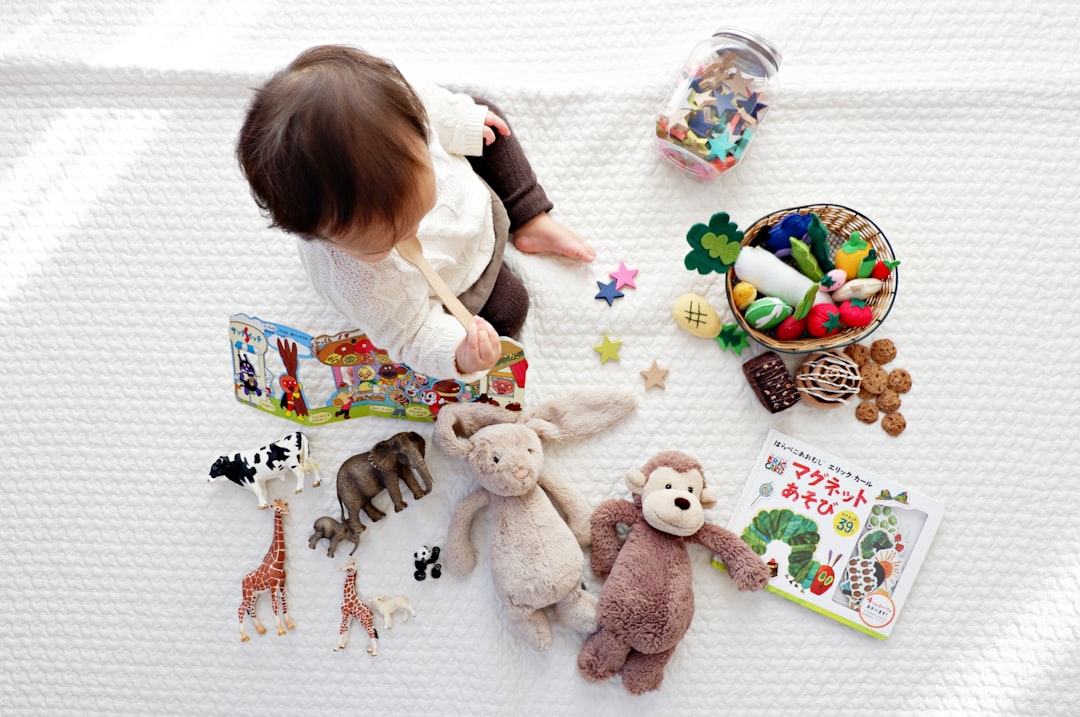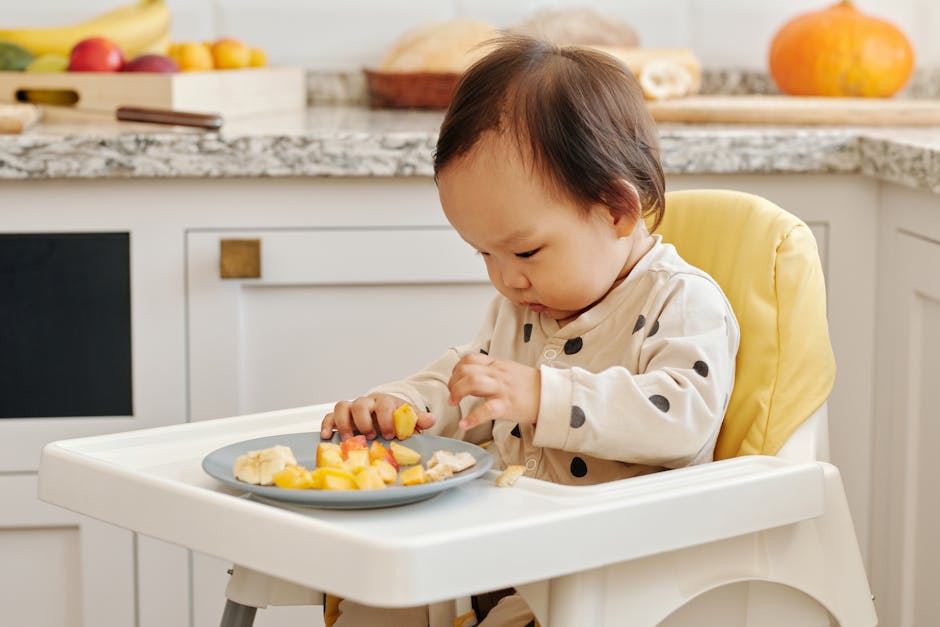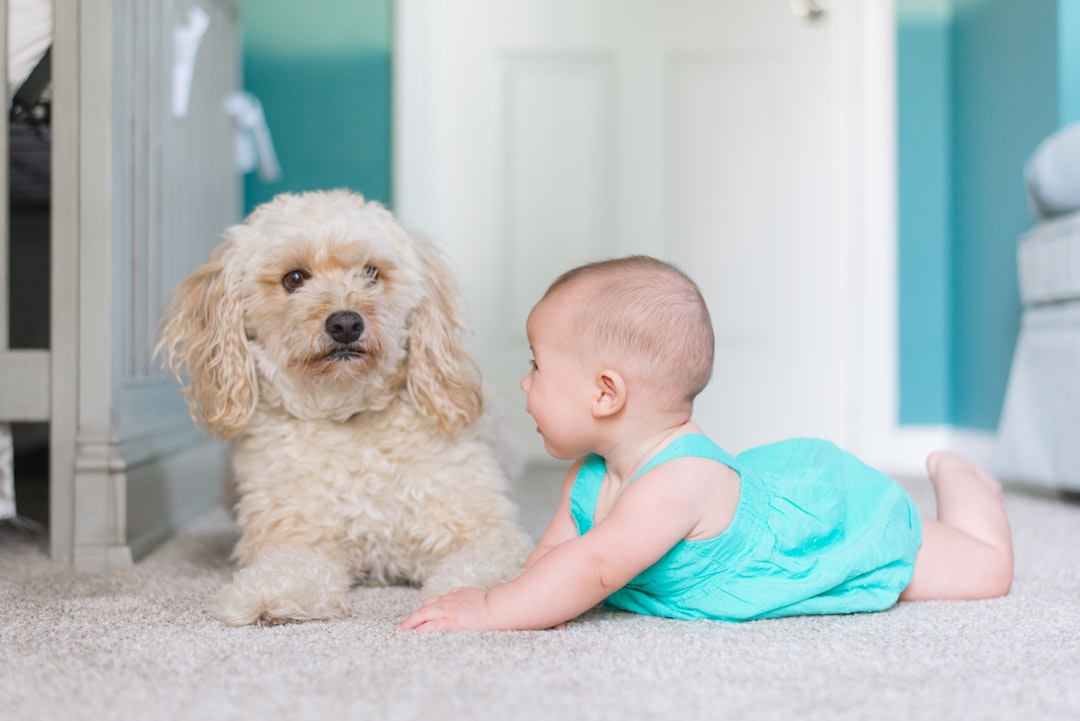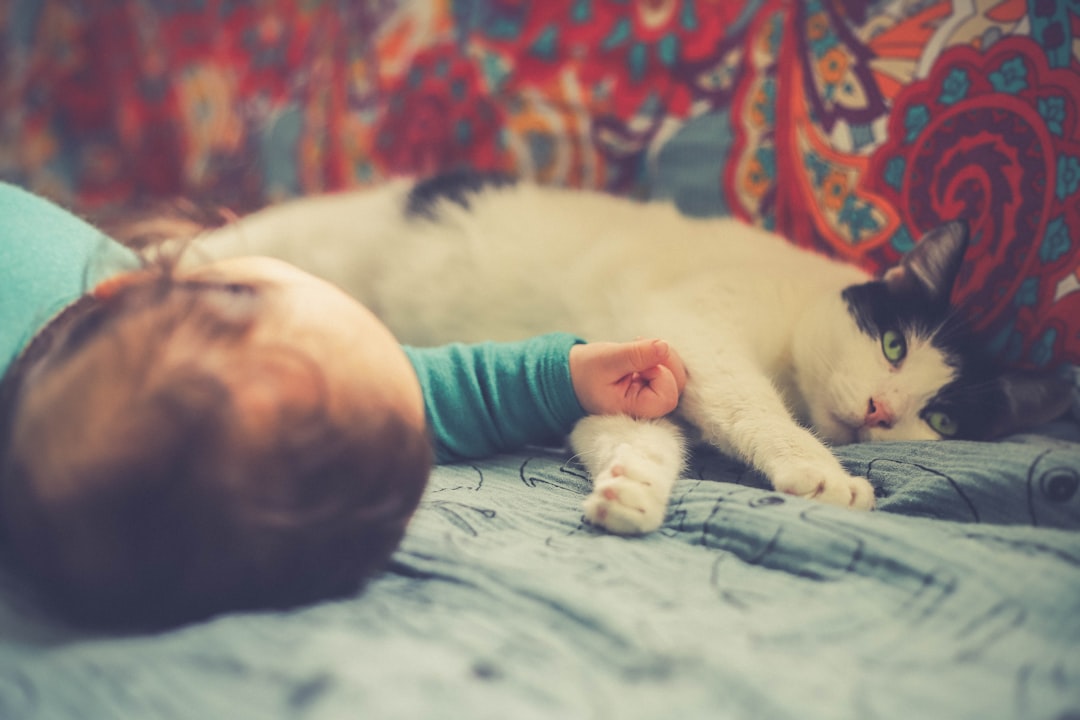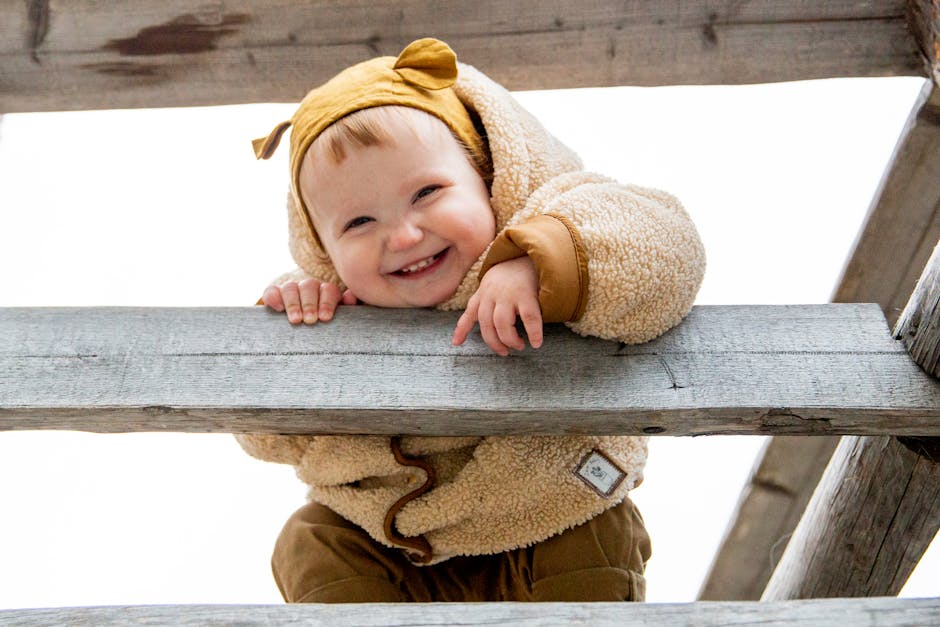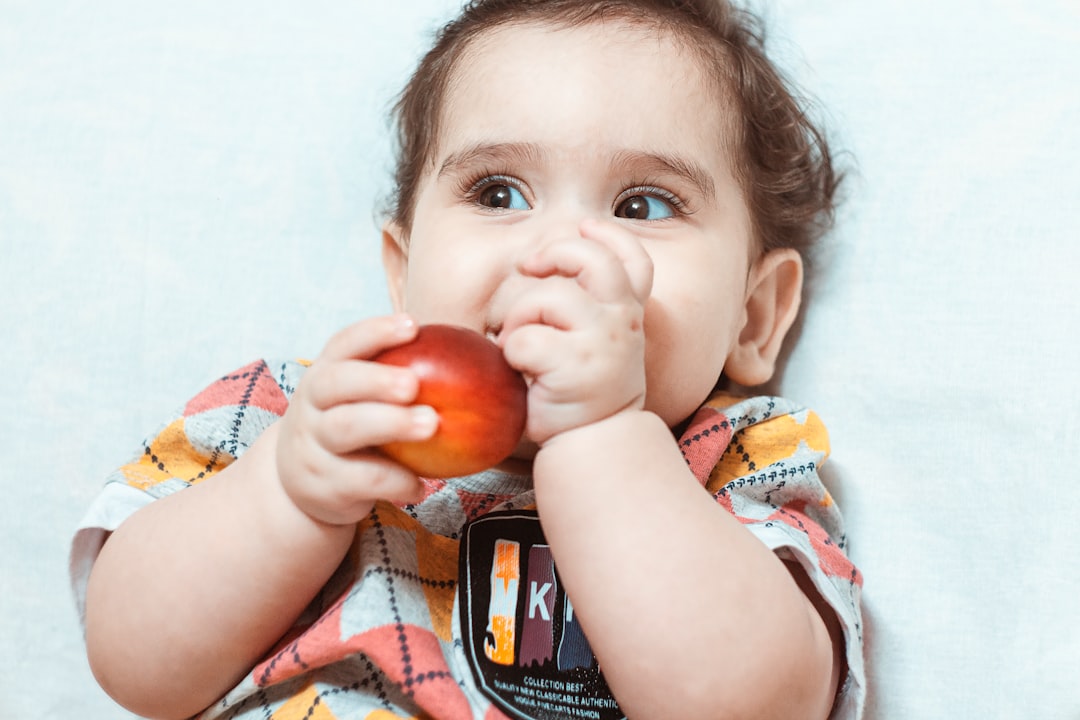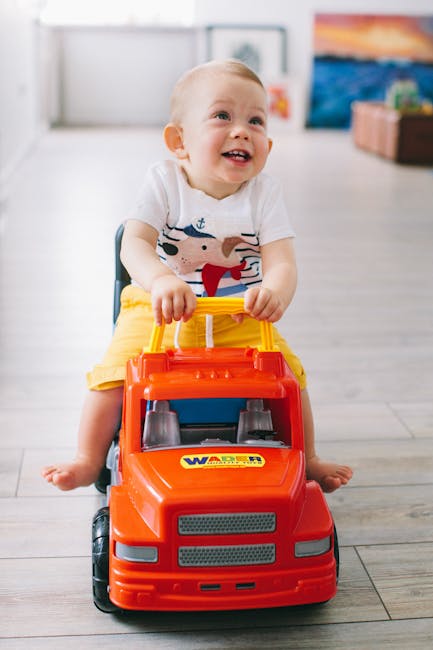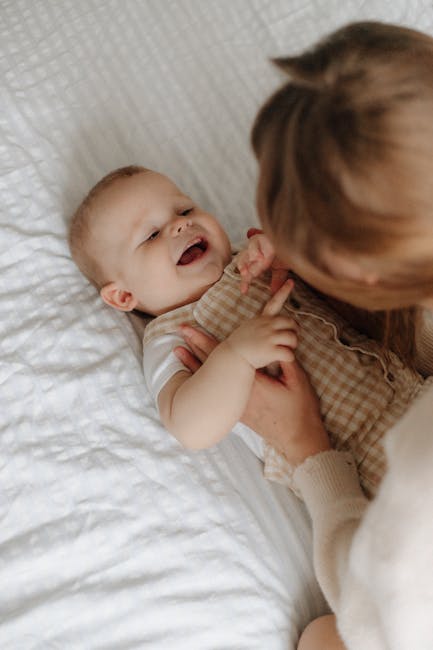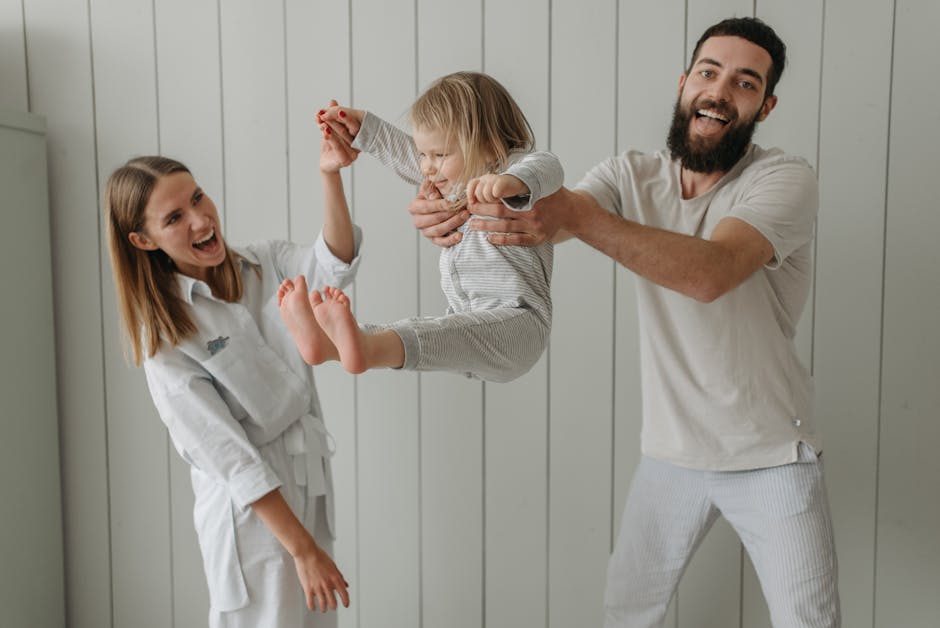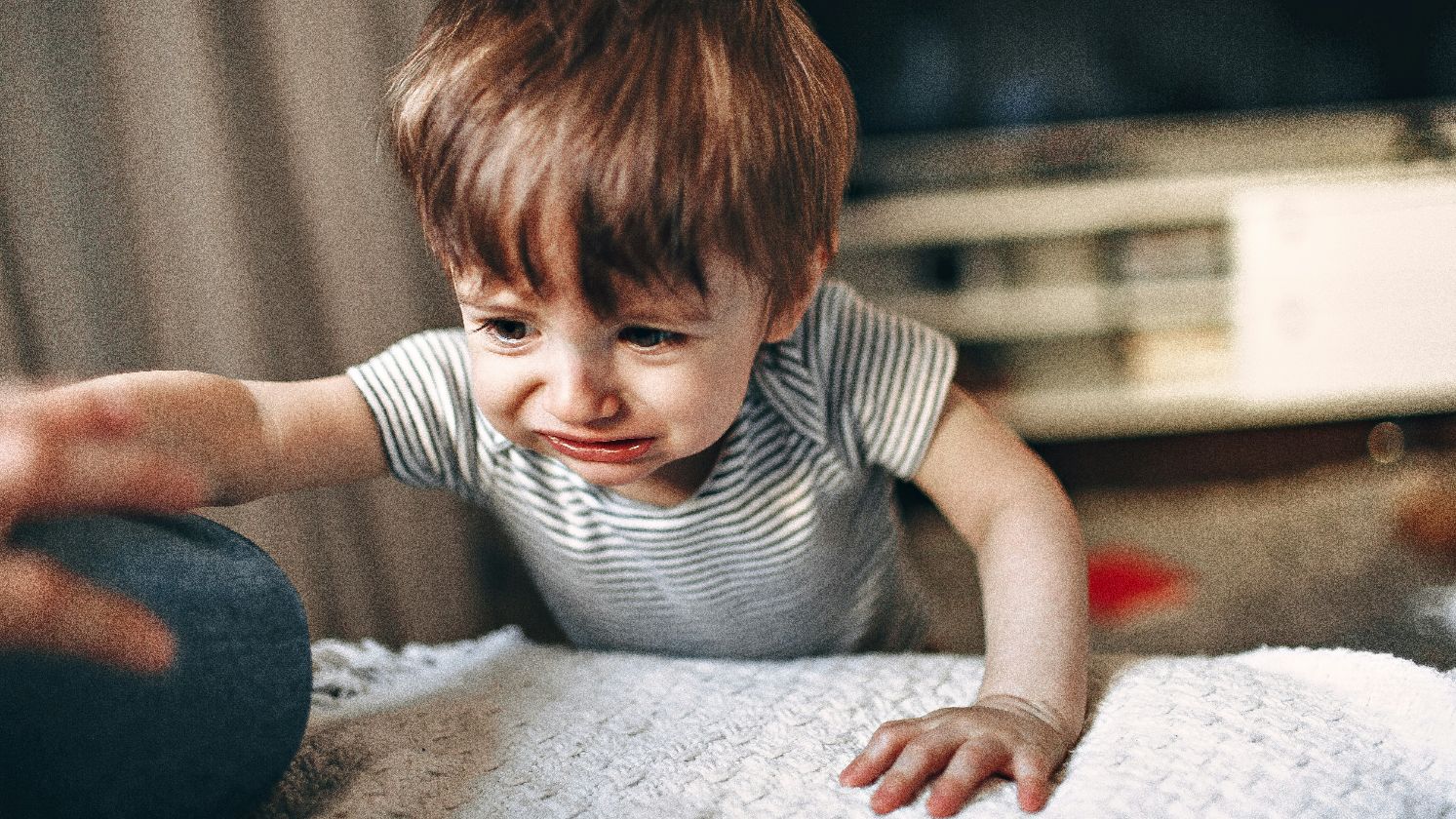Babies' First Words
It's always exciting to hear a baby's babble turn into their first coherent word. Sure, it might not be anything too complex, but an expanding vocabulary indicates growth, and that's worth celebrating on its own. So, which words do babies typically learn first? From "mama" to "up," here are the 20 most common first words that babies say.
1. Mama
For all the mothers in the world, we of course had to put this one first on the list. It's no surprise that "mama" is one of the most common first words babies learn to say. After all, not only are moms the ones who give birth, they're also usually the ones who spend the most time with newborns.
2. Dada
After (or sometimes before) "mama," babies learn to say "dada," too. Again, this should come as no surprise for newborns who are around their parents most. Plus, while "mama" and "dada" are two-syllable words, they're made up of the same sound, which is why they're easier for babies to pick up.
3. No
Whether it's an answer to something they find icky or said for no reason at all, babies love saying "no." This word is often repeated enough around the household by parents that it becomes familiar to babies. And since it's just one syllable, it's even easier to learn.
4. Ya
Not yes, but "ya." While some babies will learn to say "yes" as well, you'll likely hear them saying "ya" more. One reason for this might be because it sounds similar to "mama" and "dada." And since babies love repeating sounds, "yes" transforms into "ya."
5. Hi
When a baby is paraded around the room to 50 relatives (and counting), it's no wonder they'll pick up the world's most common greeting. Parents usually prompt their newborns to say "hi" to just about everybody, so it becomes another word they'll add to their growing list.
6. Bye
Just like how "hi" is a common greeting, "bye" is a common parting. Babies usually pick up this word the same time they learn the first, since these two terms often come together. Some may also learn to say "bye-bye" as it's merely grouping the same syllable together.
7. Uh Oh
This is probably not a word you want your baby to be saying as their first word. Are they saying "uh oh" for fun? Or are they saying it because they made a big mess somewhere? Only one way to find out. Jokes aside, this is a good first phrase to learn so that babies can alert parents if something is wrong.
8. Yucky
Kids are honest; babies are even more so. If they find something unappetizing or off-putting, they'll voice that out. There could be variations as well to this word, where some will learn to say "icky" first instead of "yucky." (Or if they've seen enough gross things, they'll pick up both.)
9. Okay
"Okay" is simply combining the sounds of two letters, which makes it easy for babies to learn it. It's also a word parents typically use to end their questions (like "Is that okay?" or "We'll get you some milk, okay?"), and that frequency allows babies to pick up on it.
10. Baba
What a mysterious word. Though "baba" is a common first word that babies learn to say, it's not entirely sure what they're referring to. "Ball"? "Baby"? A mispronunciation of "mama" or "dada"? The simplest explanation is that it's just an easy sound to say, but more often than not, it's likely just a baby's incoherent babble.
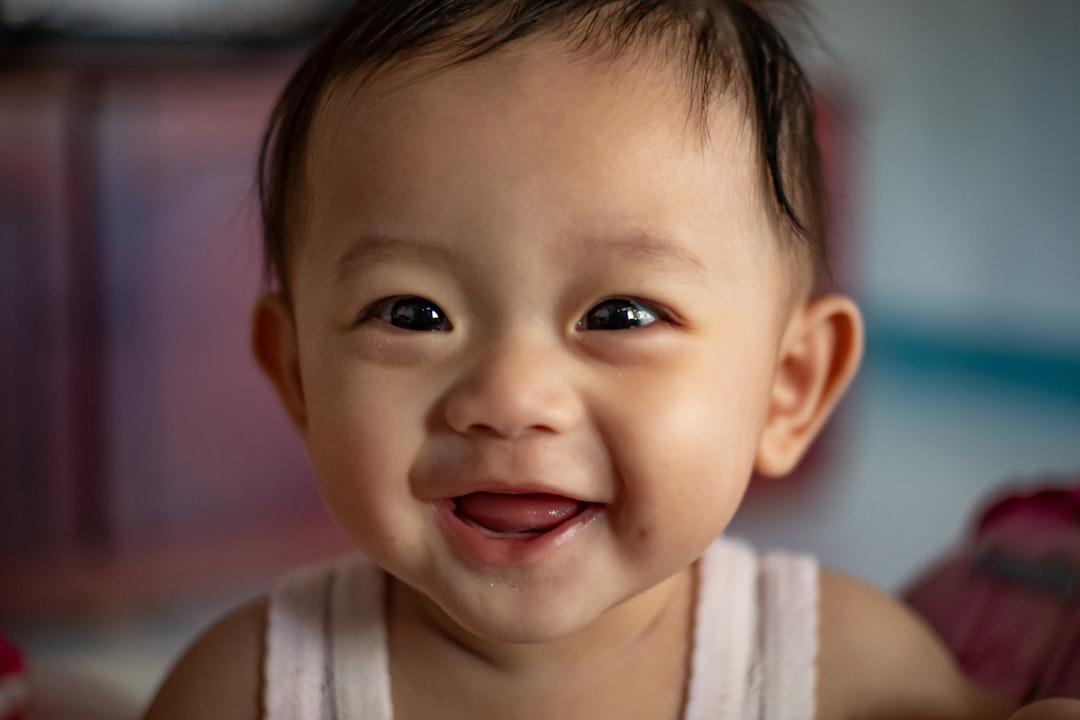 Reynardo Etenia Wongso on Unsplash
Reynardo Etenia Wongso on Unsplash
11. Up
"Up" is another common first word for babies for obvious reasons: they want to be carried. They'll pick this term up from hearing parents ask if they want to "go up," and once they learn it, they'll use it to their advantage. Here's to all the moms and dads with sore arms out there.
12. Toy
It wouldn't be a babies' common first words list without the word "toy," would it? As with most sounds, this one-syllable term is easy to pick up—and made even easier to learn since babies are often surrounded by toys. It'll probably be more odd if they didn't say this word.
13. Nana
"Nana" is similar to "mama" and "dada," which makes this a simple one for babies to learn. They'll usually grasp this word and use it to refer to grandma or, in other cases, a banana. For the latter, you might think it odd that babies wouldn't pick up all the sounds of "banana," but it might be because it's three syllables and "nana" is just easier to say.
14. Doggy
If you have pets at home, this may also influence what your baby's first words are. "Doggy" or "puppy" could both be learned, depending on which one babies hear most. Since pets are present almost all the time in a baby's environment growing up, this is a word they'll pick up quickly.
15. Kitty
Do you have a cat instead of a dog? Then, "kitty" might be part of your baby's initial vocabulary instead. Again, as with all other pets you may have in the house, since they're regularly part of your baby's environment, they'll pick up on words like "kitty" and "doggy" relatively fast.
16. Done
As babies start to become more familiarized with their surroundings and actions, they'll likely learn the word "done." Other than being an easy one-syllable term, parents may also repeat it often enough (like, "Are you done with your food?" or even simply, "All done?") that babies eventually pick it up.
17. Yummy
Since babies tend to eat a lot and "yummy" or "yum" is typically used to describe food, this is another term they'll learn rather quickly. And again, similar to saying "yucky," babies are honest; they'll react well to foods that they find appetizing, and they'll immediately spit out those that don't meet their standards.
18. Car
Cars are everywhere. And since babies learn from what's present in their environment, they'll typically learn to say "car" quickly as well. If they also have toy cars to play with or other similar visual cues, that's even more of a bonus.
19. More
Babies will say "more" to everything. More food, more hugs, more laughs. Parents also prompt this question to them in each of those situations, which is why they'll be able to pick this up through repetition.
20. Go
Other than the fact that "go" is another easy one-syllable word, babies tend to learn this word in environments that encourage motion and active play. And since they're often engaged in toys, games, and other activities, this is a word that they'll hear frequently enough to pick up on.



